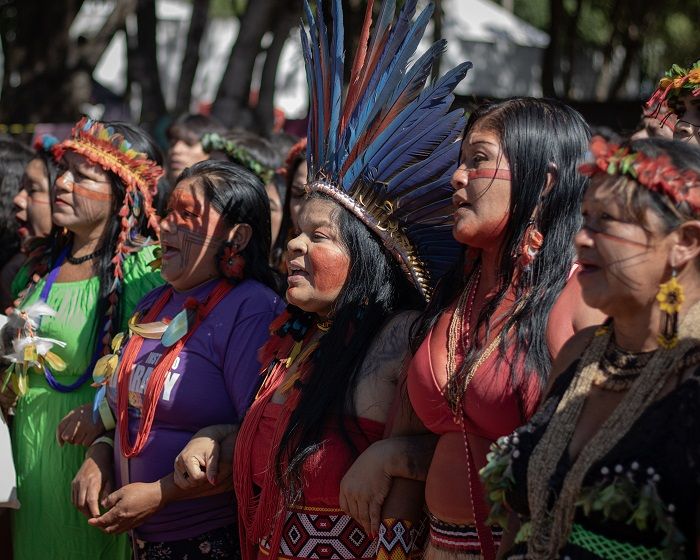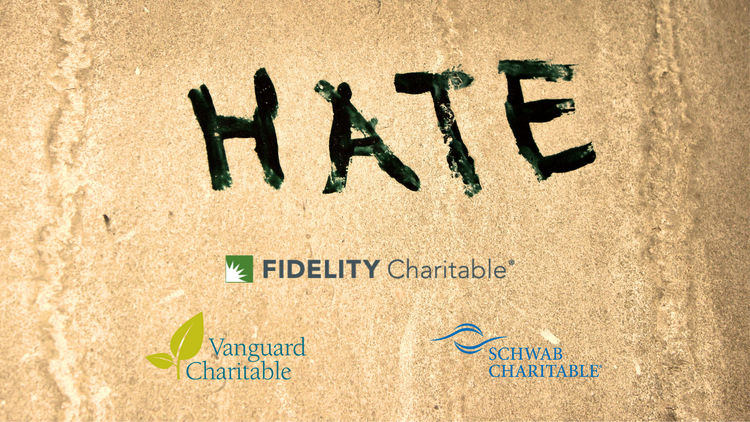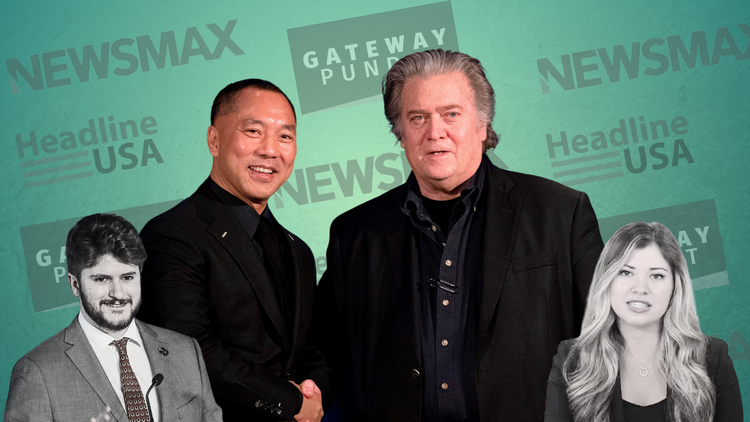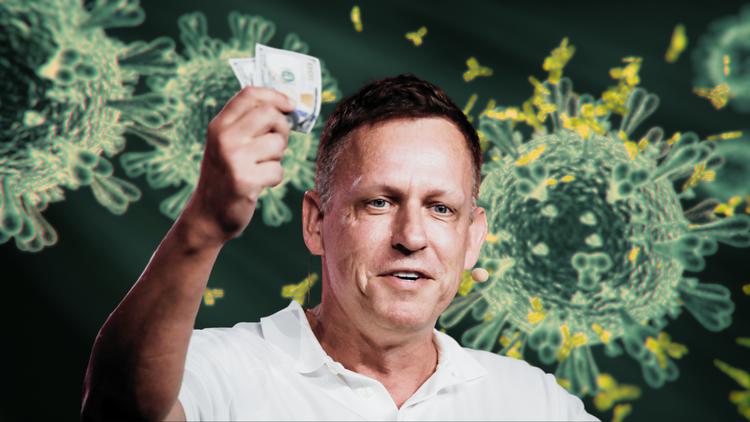OptOut Special: An Interview With Journalist Matt Binder On Twitter's Shake-Up
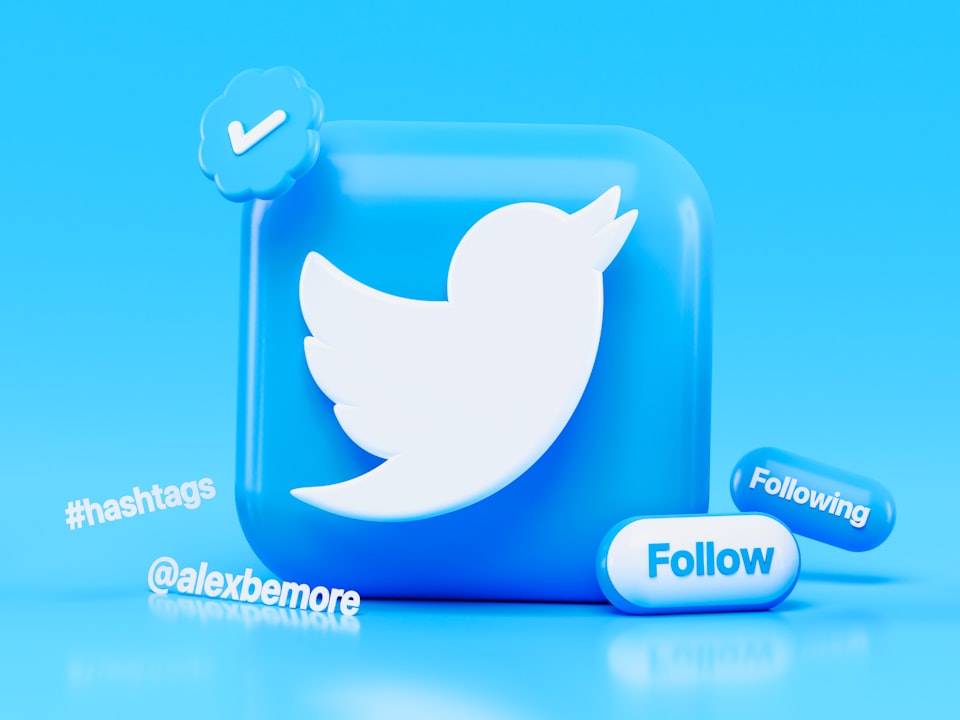
Written by:
This is the newsletter of OptOut, a free news aggregation app for exclusively independent media that's available for Apple and Android devices. Find out more about the app at optout.news.


All eyes were on Twitter last week as the social media platform underwent a significant change to how it handles content. Owner Elon Musk, who purchased the company for $44 billion, finally made good on a promise he made early on to remove legacy verification badges, originally given out by the company as a security feature to prominent individuals at risk of impersonation.
The change meant that only subscribers to Twitter Blue, the platform’s subscription service, would have verification badges. Musk had been teasing the change for months, winning the backing of right-wing personalities who saw it as a dig at Hollywood celebrities and liberal media figures. Those public figures, in turn, pushed back on the idea and pledged to not pay.
Well, it all came to a head this week, and so for our weekly newsletter, OptOut spoke with reporter Matt Binder of the podcast DOOMED about the developments.
Binder’s coverage of Twitter has been both thorough and impactful. He has even rankled Musk, catching a temporary suspension for his work. What follows is our conversation, which has been edited for clarity.
What's the latest with Musk and Twitter?
So on Thursday, Elon Musk delivered what he'd been saying he would for many, many months. He got rid of the legacy verified badges on the various different legacy verified accounts–those are the blue checkmarks that were applied to various users before Musk took over under the old Twitter verification system. It was predominantly given out to celebrities, athletes, big musical artists, media figures, journalists, media companies, any sort of public-facing individual or company that primarily would face an issue with impersonations. People don't understand: That was the purpose of Twitter's old verification. It was to simply stop people from [impersonating] these prominent figures on the platform. It's actually why Twitter took off in the early 2010s among celebrities like Justin Bieber, and all those big stars...They used Twitter because of the verification system. No other platform was doing that.
And on Thursday, he took them away. And at that point, the only way to have the blue checkmark on Twitter was to sign up for the $8 per month Twitter Blue plan. The big celebrities—that probably bothered them because the whole reason they use Twitter was because they didn't have to deal with impersonation problems on the platform.
But for most people, I don't think they liked a different aspect of that. And that was anyone who's paying Twitter for that blue checkmark automatically got prioritized in Twitter feeds and in your replies. So, there was a big campaign against it. The subscription plan itself never really took off. After six months, there's only around something like just over 600,000–I think the exact number puts it somewhere in the realm of 630,000–subscribers. To give you an example of how that compares: Twitter's current user base, according to Musk is around 250 million people. A very tiny portion of that is actually made up of Twitter's power users. 630,000 subscribers is just not a lot for a company with that many users. To give you a better comparison, Snapchat unveiled their own premium features–like a paid-for subscription–just think a few months before Twitter did, and they at this time have 3 million paying subscribers.
What does that mean for Musk and the company? He bought this company for $44 billion. Recently, The New York Times reported that he said that its value is down to $20 billion. What's going on?
I don't have any current like out to this minute numbers, but when Musk took over about half of Twitter's biggest advertisers stopped advertising on the platform. And then last month, it was reported that a lot of them had still not returned. I think it's still around roughly half. And then, in addition, the advertisers that did stick around like Disney, Apple, etc.—they're spending something like 80 percent less now on Twitter than they did before Musk. So even the advertisers that didn't leave decided to pull back their advertising on Twitter big time. So Musk had this idea I think that paid subscriptions would help make up the amount of money they lose from that. It was a bad idea from the beginning.
If you've had experience in both a subscription-based business and an advertiser-based business, you without a doubt know that there are very few cases where the subscription-based business makes more than the advertiser-based business. You might be able to argue that the subscription-based business brings you a more reliable amount in income, but no way does it make you more. I mean, just look at Netflix, probably the most successful average subscriber base income company of all time. They're rolling, they're rolling out advertiser-based subsidized plants, because even this, even their highly successful subscription model isn't enough to get them where they need to go, according to their business plans. So, even if he got like a few million people to subscribe, it would still not be enough to make up for what Twitter was making from its advertisers. In 2021, Twitter said they made something like around $5 billion in revenue. Of that $5 billion in revenue, $4.5 billion of it came from advertisers, which means they only made $500 million from things like API keys and stuff like that.
Wow. So does that mean that Musk is at risk of losing this company or defaulting on the interest payments he has to make?
Musk does claim they are now close to or around breaking even. We will not know anything about the accuracy of those numbers because Twitter is no longer a public company. When Musk acquired it became a private company and then he rolled Twitter, under his new X company. So, Twitter as a company doesn't exist anymore. It's a product under his X company. So we don't know how truthful he is there. He did lay off a lot of people, so I'm sure he was able to bring expenses down. Now the question is, were those cuts in expenses equal to how much Twitter needs to make? I don't know about that. I mean, they're not paying their rent. A few of their offices are being taken to court by the landlords of those buildings.
I will say that I'm not someone who is like, "Oh, you know, Twitter's gonna go down." It's so long ago so the whole social media ecosystem is very different, but people need to remember when News Corp—Fox News' parent company—bought MySpace in 2005. It took them three years to mess up and lose MySpace's position as the biggest social media platform. It's not looking good for Twitter, but I don't know if it's the death knell for Musk's Twitter yet.
I want to add two things. There's also a strategic or ideological reason for Musk's purchase and some of his biggest backers like the Saudis might actually share that with him in terms of viewing Twitter as a way to control a major media platform. So for them, it might be worth it if they're not losing too much—like obviously if they're losing tens of billions of dollars it’s not going to last. But if they're not losing too much, I can see them continuing with this. But on top of that, [Musk] does have a lot of investors in this—this isn't just his decision. If they decide that the party's over because it's just not working out, then they might have to sell off.
But I don't see Twitter dying just straight from this. Is it possible that they turn it into a completely irrelevant platform? That's certainly a possibility if this goes for a long time. But I don't think that [in] a business sense, if Musk fails to make this profitable, they would just sell it off and make whatever back they could. The site wouldn't just shut down. The data of this site–it's been around for a very long time; there's a lot of data–it's just worth too much. It's not worth 44 billion like Musk paid. It might not even be worth 20-some-odd billion that Musk is claiming it's worth now, but it's definitely not worth nothing.
So tell me about #BlockTheBlue.
#BlockTheBlue is a campaign that started really in November when the Twitter Blue subscription model first was announced and rolled out. I don't know if the first person to use the hashtag was, but the first prominent person to use that hashtag was without a doubt, @Dril, the infamous legendary Twitter user who's part of the weird Twitter, funny shitposting account community. This dude's got 1.7 million subscribers. He is up until recently actually a completely anonymous person. It's not like he used Twitter to like, sprout off into a big acting career or stand up comedy career, and that's how he blew up big. This dude has made his entire brand—his whole thing—just his Twitter character and his Twitter posts. There's nothing that went beyond it. He did get an Adult Swim show out of it for a little bit, but even then, he did that show it anonymously. He wore a mask during the entire run of that show. So this dude is probably I would say the biggest, self-contained, self-made person on Twitter. And here he is willing to do this. Basically the campaign is to block everyone who has a Twitter Blue checkmark.
Now, back when [@Dril] started it, you had to actually check because there were still the legacy verified users. So you'd have to click the checkmark, and Twitter had actually marked it like "this person was verified under the legacy model." And then, for Twitter Blue subscribers, it would say "This person's verified because they subscribe to Twitter Blue." So back, then you could check and then block the Twitter blue subscriber. And again, I want to stress this, this might be political for some people like a message to Musk: "We're not supporting your attempt to make money on Twitter by selling me so we're blocking people who buy views, which will make them obviously not want to subscribe anymore–they probably wouldn't want to get blocked by everyone who sees that they pay." But honestly, the sentiment I've mostly seen from people as to why they're taking part in this is because they just hate the type of people subscribed. I think anyone who uses Twitter can pretty much agree with this sentiment that 99 percent of Twitter Blue subscribers are very low-level content creators.
I say that not to knock the hidden geniuses, who have been creating great content but just never took off and they're stuck with maybe a couple of thousand Twitter subscribers—there are tons of those people on Twitter who deserve more attention because they're funny, or they make good content. I'm talking shit-level content. No one wants to read it. It's like people peddling crypto bullshit; AI nonsense; that whole LinkedIn pro-business bullshit that you see; a lot of straight-up like Musk fanboys; a lot of right-wing accounts—and I don't just mean like your basic Donald Trump MAGA supporters. I'm talking about open white supremacists and neo-Nazis. And to be completely clear, the right-wingers are like "Oh, you call any right-winger a neo-Nazi." No, I mean literally people who are openly posting the swastika on their profile page and saying, "Wow, I can't believe Twitter just verified an out-and-out neo-Nazi like me!” People who are openly calling themselves that because that's what they are.
People just don't want to see that stuff. And Twitter, as one of the bonuses for subscribing to Twitter Blue along with the checkmark, is that you get front and center priority placement at the top of people's feeds and at the top of the replies to any tweet that you reply to as Twitter blue subscriber.
So what does that mean for the future of the platform? If all the content that's being prioritized is this kind of low-level stuff that nobody wants to see, doesn't that remove some of the utility of Twitter?
Absolutely. I mean, he's got to figure this out if he doesn't want Twitter to die. I know people have been bringing up like, "Oh, his right-wing turn," "his decision to do this." This is the one that's going to hurt. Remember 80 percent of Twitter's users just consume content. They barely ever tweet, and if they do, it's once or twice a month in like the replies of someone they log in to follow. Only 20 percent of Twitter's user base actually creates content. And in terms of the people who create content on a regular basis, it's even smaller than that. So if 80 percent of Twitter users just consume content, and they log in, and all they see in their feed, are these garbage Twitter Blues subscribers promoting their garbage crypto shit or whatever, then they're going to be like, "This is not what I'm interested in; I don't follow these people; I don't want to be recommended these users; I'm not getting the news or information or content that I come to Twitter for anymore, so I guess I'm just not going to come on Twitter anymore."
I mean, that's going to be the one that really messes with [Musk] and will eventually I think, really hurt Twitter in the long run. [Musk] just did this thing over the weekend in response to #BlockTheBlue where he subscribed @dril and me and then every account with more than a million followers to Twitter Blue. I think it was to stop the #BlockTheBlue movement because if people are blocking the blue, then oh, no! They gotta block @dril and Matt Binder and their favorite celebrities or whatever. I mean, maybe the automated stuff will do that, but people aren't gonna block people they like. In the same sense, though, I just don't see how that helps anything. It even further devalues Twitter Blue because he's using it to sort of like, own people. I've never seen in my life, someone give away their product for free in an attempt to shame them.
Your coverage of Twitter has obviously rankled Musk. How has that been for you, seeing your work have an actual impact?
I want to say is this is just not an observation either–[Elon]'s pretty much confirmed that he is at least aware of my work. In December, I was one of the seven journalists temporarily suspended for reporting on the ElonJet tracker. Later on, basically, the entirety of Twitter spaces went down for a little bit because I found a loophole that allowed me into a Twitter space to chat with people while I was suspended from the platform. And then, over the weekend, he was liking tweets talking about my coverage of #BlockTheBlue that were critical of #BlockTheBlue. And then, he confirmed that he put the blue checkmark on my account and @dril's count, basically as a troll. You know, Musk is often knocked for not having any sense of humor and being really bad at comedy in attempts to be funny online, and that's absolutely true–he's horrible at it. I think this was the very first time he did something funny. That was funny.
With the association of what the checkmark now means–with Musk's right-wing turn; with who his fans are; with all the implications of that–do you feel sort of defamed? Do you see a lawsuit in that?
You know, some people have reached out to me and asked me if I'm gonna pursue it. I don't think I'm the person to do it. I want to continue to cover this. So, I don't want to put myself into it like that. A bigger reason honestly is I don't think I'm the person to do it because I think there are people with a better case to be made.
I was probably the smallest or one of the smallest users who received this. I remember it was almost every user with more than a million followers. Some people he purposely did not give it to–like Jack Dorsey, the former Twitter CEO and founder who he's feuding with–but for the most part, if you had over a million followers, you got this checkmark. So, I'm not in that group. He specifically wanted to give it to me...I think there are people who have a better argument to make that making it look like they're promoting [Blue] by subscribing to the service when they are not hurts their brand...If someone would want to pursue that, I'd love to cover it and see how it plays out. I just don't think I'm the right person for that job.
The OptOut Media Foundation (EIN: 85-2348079) is a nonprofit charity with a mission to educate the public about current events and help sustain a diverse media ecosystem by promoting and assisting independent news outlets and, in doing so, advance democracy and social justice.
Download the app for Apple and Android.
Sign up for OptOut's free newsletters.
Learn more about OptOut.
Merch
Follow us on Twitter, Instagram, TikTok, YouTube, Mastodon, and Facebook.



